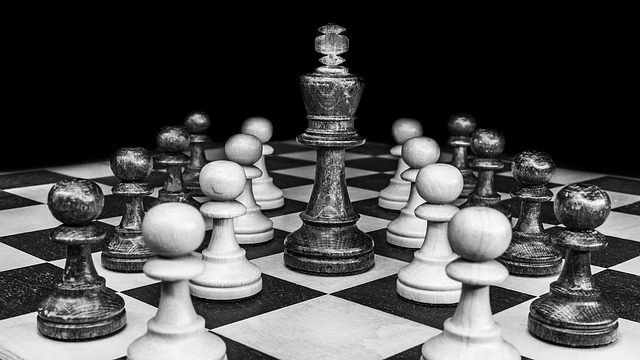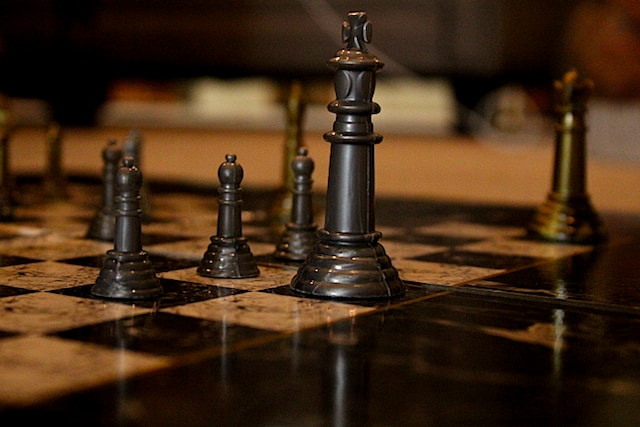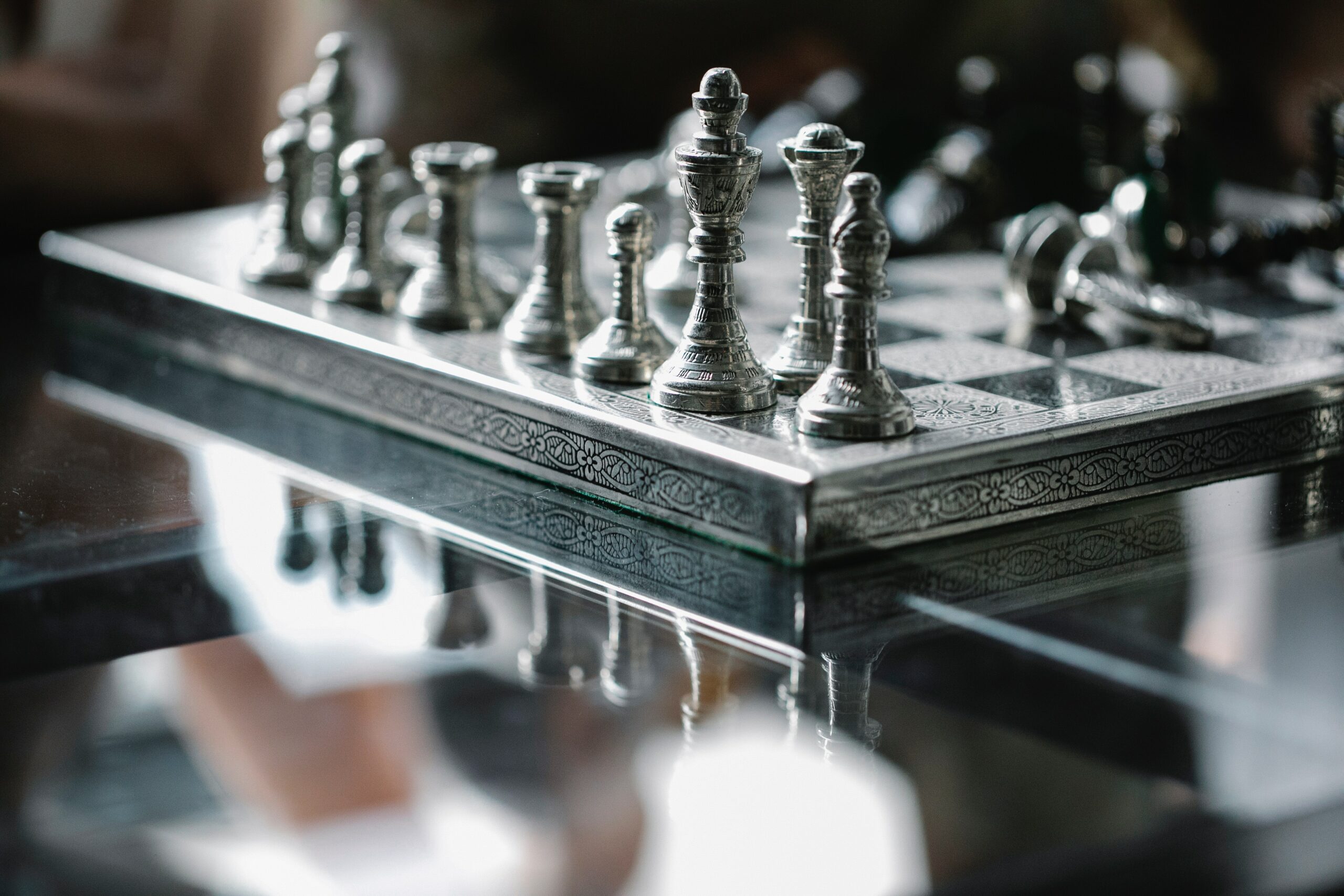Welcome to the captivating realm of chess endgames! As any experienced player knows, the endgame is a critical phase of the game where mastery can lead to victory. If you’re seeking the best way to study and improve your endgame skills, you’ve come to the right place.
The endgame is a fascinating and intricate stage of chess, where only a few pieces remain on the board. It demands precise calculation, strategic thinking, and a deep understanding of key concepts and principles. Whether you’re a beginner eager to grasp the basics or an advanced player aiming to refine your skills, this guide will provide you with valuable insights and techniques to enhance your endgame prowess.
In this journey of endgame exploration, we will delve into various aspects that contribute to a successful study of chess endgames. We will discuss essential principles, such as pawn structures, piece activity, king centralization, and the importance of zugzwang. We will also explore key endgame concepts, such as opposition, king and pawn endgames, rook endgames, and more.
Why are endgames crucial for chess improvement?
Endgames play a crucial role in chess improvement for several reasons. Firstly, studying endgames enhances your overall understanding of chess principles and concepts. Endgames strip away the complications of the middlegame and highlight fundamental elements such as piece coordination, pawn structures, and king activity.
Additionally, endgames teach important skills such as accurate calculation, precise maneuvering, and strategic decision-making. By delving into endgame study, you develop a deeper appreciation for the subtleties and nuances of chess, which can be applied to all phases of the game.
Moreover, endgames offer practical benefits. Many games reach an endgame phase, and having a solid understanding of endgame principles can provide a competitive edge by increasing your chances of converting an advantage or saving a difficult position.

How do I approach studying endgames effectively?
To approach studying endgames effectively, it’s important to strike a balance between theoretical knowledge and practical application. Start by familiarizing yourself with basic endgame principles and fundamental theoretical positions. Mastering endgame fundamentals such as king and pawn endgames, rook endgames, and minor piece endgames is essential.
In addition to theoretical study, actively practice endgames through solving exercises and playing endgame-focused games. Working through endgame puzzles and analyzing classic endgame positions will enhance your ability to apply theoretical concepts in real games.
Make use of books, online resources, and video tutorials that cover endgame theory and demonstrate practical examples. Studying annotated master games can provide valuable insights into the strategic ideas and practical techniques used in real-life situations.
Lastly, aim to incorporate endgame practice into your regular training routine. Actively seek opportunities to play endgames against opponents or against chess engines to improve your practical decision-making and calculation skills.
Which essential endgame principles should I master?
Mastering essential endgame principles is crucial for success in this phase of the game. Key principles to focus on include king activity, pawn structures, piece coordination, and the principle of two weaknesses.
Understanding the importance of king activity and knowing when to centralize the king or use it as an attacking piece is vital. A centralized and active king can play a decisive role in endgames by supporting pawn promotion or assisting in tactical operations.
Pawn structures significantly influence the dynamics of endgames. Mastering different pawn structures and their corresponding plans and ideas will help you navigate the complexity of endgames more effectively.
Piece coordination is essential in endgames. Learning how to optimize the coordination of your pieces, such as rooks or minor pieces, to support each other and restrict your opponent’s options is crucial for achieving an advantage.

Are there specific endgame techniques and maneuvers to enhance my skills?
Yes, there are several endgame techniques and maneuvers that can enhance your skills. Some important techniques include zugzwang, triangulation, opposition, and breakthrough.
Zugzwang is a critical technique where forcing the opponent to move results in a worsened position. Identifying and exploiting zugzwang positions can be instrumental in gaining an advantage or securing a win.
Triangulation is a maneuver used to improve your position by forcing the opponent to move their king and lose tempo. This technique is particularly effective in king and pawn endgames, where tempo can determine the outcome.
Opposition is a concept used in king and pawn endgames to gain a decisive advantage. It involves maneuvering your king to deny your opponent the ability to advance their pawn or reach a desired square.
Breakthrough is a tactical technique employed to create passed pawns or break through the opponent’s defenses. This can involve sacrifices or tactical maneuvers to create favorable pawn structures and pave the way for a winning pawn advance.
What are the most important pawn structures and their implications in endgames?
Understanding key pawn structures and their implications in endgames is essential for making strategic decisions. Some important pawn structures to study include isolated pawns, doubled pawns, passed pawns, and pawn majorities. Isolated pawns refer to pawns that lack neighboring pawns on adjacent files. They can be a weakness if not adequately protected but can also provide open lines for piece activity.
Doubled pawns occur when two pawns of the same color are on the same file. They can limit pawn mobility and create weaknesses but may also offer dynamic possibilities, such as controlling key squares or supporting piece play. Passed pawns are pawns that have no opposing pawns to stop their advance. They can be a great asset, especially in the endgame, as they can potentially promote and become a winning advantage.
Pawn majorities refer to having more pawns on one side of the board compared to your opponent. Utilizing pawn majorities can help create breakthroughs, restrict your opponent’s pawn structure, and support a successful pawn advance. By understanding the implications of these and other important pawn structures, you can make informed decisions regarding pawn breaks, piece placement, and strategic maneuvers in endgames.

How can I improve my calculation and visualization abilities in endgames?
Improving calculation and visualization abilities in endgames requires regular practice and training. Solve endgame puzzles and exercises regularly. These exercises challenge your calculation and visualization skills and expose you to different tactical and strategic patterns that arise in endgames.
Analyze and play through annotated master games that feature complex endgames. Try to calculate the variations and visualize the resulting positions. This will sharpen your ability to calculate accurately and visualize the consequences of different moves. Practice visualization exercises where you study a position briefly, close your eyes and try to recreate the position mentally. Work on visualizing the possible moves, piece placements, and resulting positions.
Engage in blindfolded chess or play games without a physical board. This forces you to rely on mental visualization and calculation, which can significantly improve your abilities in these areas. Regularly review and analyze your own endgame games. Identify critical moments where calculation and visualization were crucial, and assess your performance. This self-reflection will help you identify areas for improvement and guide your training efforts.
Are there recommended endgame books and resources for in-depth study?
There are several highly regarded endgame books and resources that provide in-depth study material. “Dvoretsky’s Endgame Manual” by Mark Dvoretsky is often recommended as a comprehensive guide covering various endgame themes and positions. It offers detailed explanations and analyses that cater to both intermediate and advanced players.
Another popular resource is “Silman’s Complete Endgame Course” by Jeremy Silman, which breaks down endgame concepts into easily digestible sections and includes practical exercises to reinforce learning. Additionally, “Endgame Strategy” by Mikhail Shereshevsky delves into the strategic aspects of the endgame, providing valuable insights into planning and maneuvering in various endgame scenarios.
Online platforms such as chess.com and chess24 offer interactive endgame lessons, videos, and practice exercises that can supplement your study. Chess databases like lichess.org and chessbase.com provide access to a vast collection of annotated endgame games played by masters, allowing you to explore different endgame techniques and ideas.
Can studying famous endgame compositions enhance my understanding?
Studying famous endgame compositions and studies can greatly enhance your understanding of endgames. These compositions, often created by renowned chess composers, showcase the beauty and depth of endgame play.
Famous compositions, such as those by Richard Réti, Aron Nimzowitsch, and Alexander Alekhine, offer unique challenges and demonstrate intricate ideas that can expand your understanding of key endgame concepts. They often feature surprising moves, sacrifices, and strategic maneuvers that highlight the subtleties of the endgame.
By studying these compositions, you develop a deeper appreciation for the artistic and strategic aspects of endgame play. They can inspire creative thinking and provide valuable insights into complex endgame themes, helping you improve your practical decision-making and calculation abilities.
| Endgame Study Method | Benefits | Recommended Resources |
|---|---|---|
| Studying basic endgame principles | Develops fundamental endgame understanding and decision-making | Books like “Silman’s Complete Endgame Course” by Jeremy Silman, online tutorials |
| Analyzing classic endgame examples | Reveals timeless principles and strategic concepts in practical scenarios | Books like “100 Endgames You Must Know” by Jesus de la Villa, annotated games databases |
| Solving endgame puzzles | Improves calculation, visualization, and critical thinking skills | Websites like chess.com, lichess.org, puzzle books like “1001 Winning Chess Sacrifices and Combinations” by Fred Reinfeld |
| Playing endgame-focused games | Applies learned endgame principles in real game situations | Online chess platforms with endgame training modes, OTB practice games |
| Utilizing endgame databases | Examines high-level endgame examples and explores various variations | Chess software like ChessBase, online endgame tablebases |
How can I leverage online tools and resources for interactive endgame study?
Online tools and resources provide excellent opportunities for interactive endgame study. Chess websites and platforms offer a variety of features that can enhance your learning experience.
Online endgame tutorials and video lessons provide visual explanations of key endgame concepts and techniques. You can watch and learn from experienced instructors as they break down important positions, demonstrate strategic ideas, and analyze practical examples.
Interactive endgame trainers and puzzle modules allow you to test your knowledge and skills. These tools often provide immediate feedback, enabling you to identify and correct mistakes. They offer a practical and engaging way to reinforce your understanding of different endgame themes and improve your decision-making.
Are there any endgame training exercises or puzzles to sharpen my skills?
Endgame training exercises and puzzles are excellent tools for sharpening your endgame skills. These exercises challenge your calculation, evaluation, and decision-making abilities in a focused and practical manner.
Endgame puzzle books, such as “100 Endgames You Must Know” by Jesus de la Villa, present a collection of instructive endgame positions and puzzles. Solving these puzzles improves your ability to find the most accurate moves and assess the resulting positions.
Online platforms and chess apps often provide endgame training modules or daily puzzles to solve. These platforms offer a wide range of difficulty levels, allowing you to gradually progress and tackle increasingly complex endgame challenges.
Working through these exercises and puzzles helps reinforce important endgame principles, trains your calculation skills, and exposes you to various tactical and strategic motifs that commonly arise in endgames.
What role does analyze grandmaster endgames play in my development?
Analyzing grandmaster endgames is a crucial part of your development as a chess player. Grandmaster endgames offer valuable insights into high-level decision-making, strategic planning, and accurate calculation.
By studying annotated grandmaster games, you gain a deeper understanding of the thought processes and techniques employed by top players in critical endgame situations. You can observe how they convert advantages, defend difficult positions, or exploit tactical opportunities to secure victories.
Analyzing grandmaster endgames exposes you to a wide range of endgame scenarios, demonstrating different strategic ideas, positional sacrifices, and winning plans. It helps you internalize essential endgame concepts and build a repertoire of techniques that you can apply in your own games.
Overall, analyzing grandmaster endgames provides a wealth of knowledge and inspiration, enabling you to develop a deeper appreciation for the complexities of the endgame and guiding your growth as a chess player.
Final Thoughts
Remember that endgame study is not solely about memorizing specific positions or variations. It’s about developing an understanding of underlying principles, recognizing patterns, and applying strategic thinking in dynamic situations. Through consistent study, practice, and analysis, you will build a strong foundation of endgame knowledge and skills.
Now armed with your newfound knowledge and a commitment to improvement, venture forth into the world of chess endgames. Embrace the challenges, relish the victories, and learn from each experience. With persistence, dedication, and a thirst for growth, you are on the path to becoming a skilled and well-rounded chess player.




